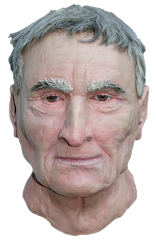Our
novitiate community was transformed in several ways during a recent two-week
workshop on “Training for Transformation”, an approach to social development
based on the work of the Brazilian educator, Paolo Freire. For a start, the population here doubled as
our nine novices and Brother Conrad were joined by members of three other
religious communities – novices and Brothers from the Presentation Brothers;
postulants from the Franciscan Missionaries of Mary; and two Sisters of the
Jesus, Mary and Joseph congregation.
The
facilitators included Ntombi Nyathi of the Grail Institute in South Africa, and
two of our Brothers from Kenya, Sunday Otieno and Paul Mutuku. Their “full on” and creative approach ensured
that everyone was actively involved and participating. Their message emphasized that the
transformation we want for the society has to start with each of us as
individuals, and then move out to the local community and the wider society.
So
the experience of the workshop was in itself an experience of personal
transformation. We began the workshop by
stepping into our sacred personal stories.
We planted a variety of seeds during the opening ritual, and by the end
of the workshop these were sprouting vigorously, reflecting the growth and
flowering that was occurring in us.
One
area of transformation was in the assumptions and unquestioned beliefs that we
often have about “the poor” and their problems.
We were challenged to see each person as a SUBJECT, with gifts and the
capacity to play a part in solving his or her own problems, and not just as the
OBJECT of the well-meaning efforts of people like us. They are not empty vessels to be filled with
our expertise! We had to make our own
shift from a NAÏVE consciousness to AWAKENING in understanding this.
This
awakening needs us to see things as the people themselves see and experience
them, so we have to be with the people, listen to them, and understand their
perspective on the world and the society.
This will be the beginning of identifying the root problem, which, in
turn, opens the way to find solutions and take action.
To
assist people in this way demands skills – so learning the skills of observing
and listening, and practicing the six steps of “digging deeper” into a
community or social issue, were central in the workshop. We practiced some of these with visits to the
markets and interaction with the market sellers in Tamale and in Kintampo,
south of Tamale.
Making
our group presentations in the final days of the workshop continued the process
of our personal transformations, as we called on our gifts and took risks to
inform, stimulate and engage our companions.
The two weeks were full and demanding, but also energizing and full of
new insights and awareness.
The workshop is over – but only for now. We carry with us new ideas and skills which
will be applied in the coming months.
For us Christian Brother novices, the three-month Community Pastoral
Placement at the start of 2014 will provide an opportunity for us to practice
what we have learned in a more extended way.
Most of the participants from this workshop will then gather again in
May, 2014, for a follow-up workshop to consolidate and deepen the
transformation that has started so memorably and inspiringly.
 |
| From Right: Br Paul cfc, Ntombi, Sr Laura jmj, and Francis - resting after lthe istening survey at the Market Streets of Kintampo |
 |
| TFT Trainees posing out for a photo at Kintampo Market after the Listening Survey! |
 |
| 6 steps of Digging Deeper explored! |
 |
| After the presentation of how to put into action the 6 steps of digging deeper and then Taking all that Energy Back! |
 |
| Lighting the fire! Demonstrating how important a Code is in helping people in the society identify their own problems. The code identifies the root cause and it ignites from there outwards like buring a fire! |
 |
| Group Photo of all the Trainiees and the three Facilitators before departures! |




































































